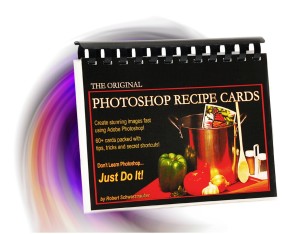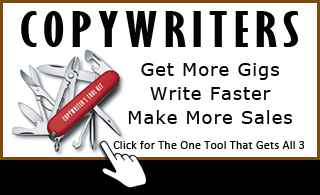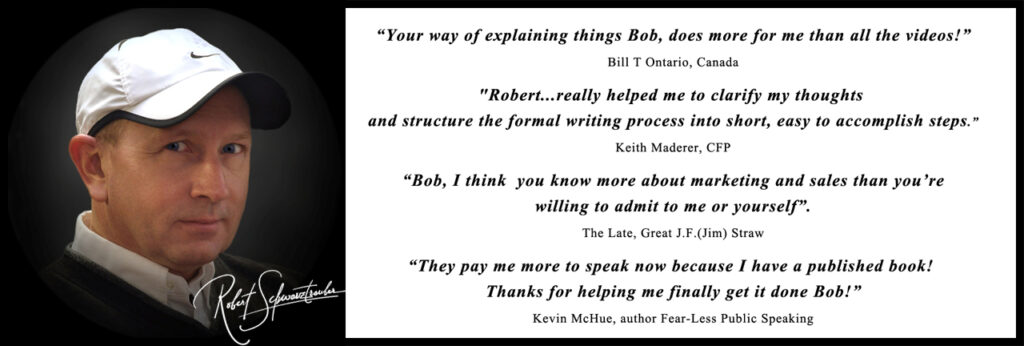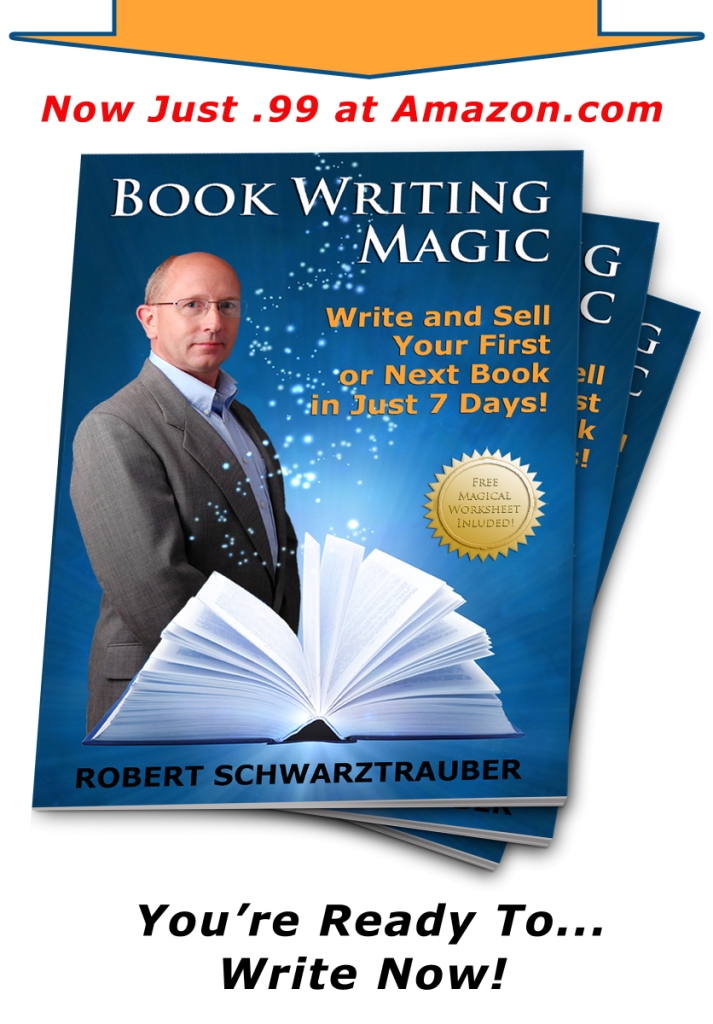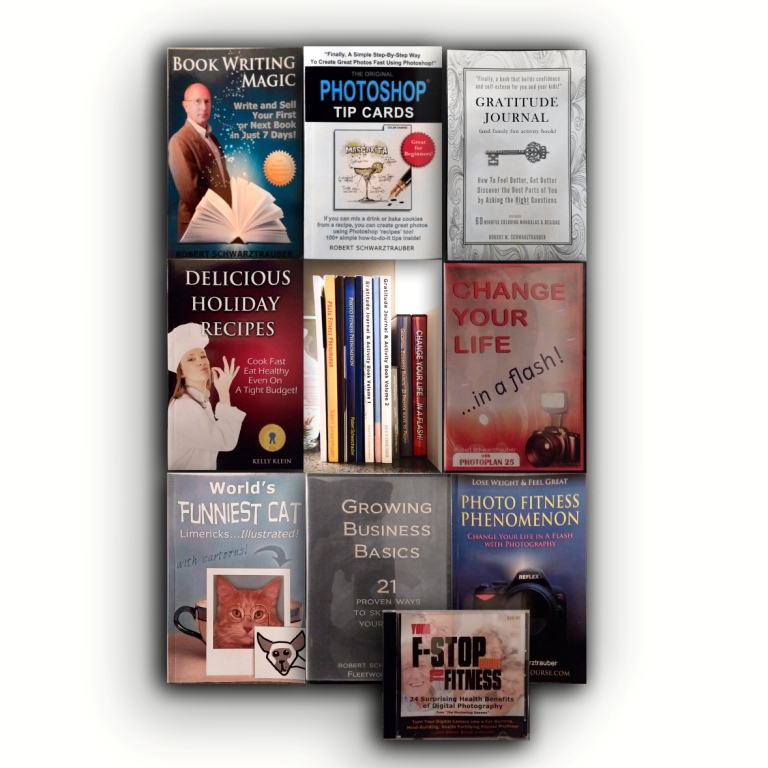Many people never start their book because they fear they don’t have enough material. I say start small, just start. You can always build it bigger, but in the meantime you could be losing sales.
Let me give you an example.
One of my best selling books, “Photoshop Recipe Cards” is a mere 64 pages long. Yet this book has sold in over a dozen countries worldwide, has buyers in nearly all 50 states, and has given me untold credibility in the photography/Photoshop arena.
What this means is that I have made money from the book sales and have made money from those who sought me out for private consulting/instruction after reading the book. Thousands and thousands of dollars made and it continues to provide revenue to this date, all from the work I did once.
If I had waited to build it bigger (like the “Big Boys”) I may have never started or finished the book and would have lost untold dollars. Moreover, I would have deprived those who only wanted the short, to-the-point version.
Here’s why I think this book has been successful and why I believe you can follow this same “recipe” to create your own success story…
There are dozens and dozens of books on Photoshop from authors far more knowledgeable than I. But their books tend to be long and detailed while mine is short. I think many people are busy and just want to get the knowledge without the fluff and filler. That’s why I created the book in the step-by-step recipe format.
Do this, do that, you’re done. Great photos.
Often, big is intimidating.
Ever get one of those offers from the big internet marketing “Gurus”? The one with twelve, 1 hour CD’s, plus 7 manuals, and 15 bonus items?
Whoa Nellie! Too much information!!!
When you see this you have to think, “Do I really have time for this?”
In the early days of publishing the physical weight of the book had a large impact on the pricing, the value a reader would associate with that book. The larger the book, the more they would expect to pay. Not so today.
Today, value is more closely tied to content. How will your book help me do what I want to do? And if it will help me get to the results faster (ie. a shorter read) then I would be willing to pay more.
I use this example in my talks:
Two authors write a book on how to get rich mining gold.
The first author, very knowledgeable in this field writes a comprehensive book including every element of the mining industry, He writes about equipment, historical techniques, geological surveys, the structure of rock and every pitfall imaginable. His hardcover book is over 700 pages long and sits on the shelf at the bookstore, listed at $29.95.
The second author is a bit of a maverick. His “book” is just three pages long including the front and back covers. On the lone interior page is a map with a big red X. The caption under the map says this, “To get rich mining gold, dig here, gold strike guaranteed!” He sells his “book” from a website sales letter and charges $99.
If put side by side which book do you think readers would prefer?
You’re right!
Whatever you answered you’re right. There will be readers who want both books, for different reasons. Some want a thorough knowledge. Some want just enough knowledge to get to work.
When in doubt, start small. But start.
Write the small book first. Sell it.
You can always add more chapters/information later for version 2.
Plus, here are two great reasons to start small rather than wait…
1. Less work. If you write a small book and no one buys it, think of how much time and effort you will have saved. If they do buy, you know folks are interested in your topic and you will have a much easier time selling your next expanded edition. (People want to buy more of what they already buy.)
2. You can be making money on the short version while you create the longer version. But if you wait to sell until the longer is completed, you lose all the advantages of #1 plus you risk wasting a lot of time writing a long book about a topic no one is buying.
The key factor in your success will be quality content.
Tide figured this out a while ago with their laundry soap. Condense it. Why not take as much water out as possible and ship the same high quality soap without the added “water”.
Right?
You know enough to write a book about something right now.
Why not test the waters and see if you can start some lifetime book royalty income flowing into your bank account from work you do just once?
Anyone can write, publish and sell their own book now.
If you have the information, but need someone to create the actual book, hire a ghost writer to assemble your knowledge into a book. Or have someone interview you and create a transcript of that. That’s your book.
No more excuses. Small is just fine.
Often , the BIG MONEY is not made from the book, but from the consulting and others offers which come your way because you have become a “celebrity” of sorts. an authority on your topic, by the simple publishing of your thoughts.
Author = Authority. Perception is reality.
Let me know if I can help you.
P.S. If you’re writing fiction (not my specialty) you’ll be happy to know that a series of books often sells better than one book. In other words, several short books centered on one theme and cast of characters sells better than one long book. How can you create a series?
Same with How-To books. Same with recipe books, think one book for appetizers, one book for main course, one book for dessert rather than lumping them all into one recipe book.
